#writer biographies
Text
By Tom Gauld
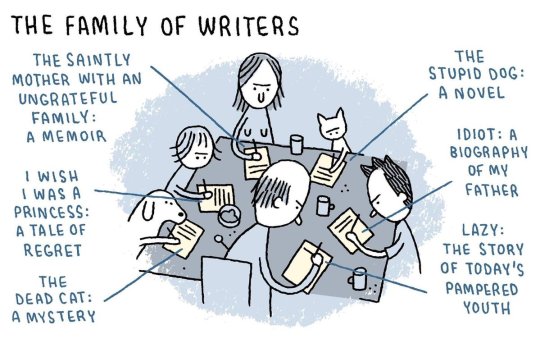
210 notes
·
View notes
Photo

Becoming by Michelle Obama
#becoming#obama#michelle obama#women#quote#quotes#love#life advice#power#books#book#book quote#literature#poisonedsequin#writer#memoir#biography#autobiography#nonfiction#books quote
587 notes
·
View notes
Text
The more I learn about Civil War politics, the more I'm convinced that Lincoln's most impressive and useful leadership trait was that he never let his pride get in the way of doing his job.
Other people in Lincoln's position would have come to Washington with something to prove. They'd have resented the insults and tried to disprove them. They'd have tried to seize power and credit, rejected help, spent a lot of time trying to reach a certain level of respect.
Lincoln's response to, "You're just a backwoods lawyer with no executive experience who makes too many dumb jokes," was pretty much always, "Yeah. And?" He had no interest in petty personal power plays. He had a country to run. There was a war on. It didn't matter what people thought of him so long as the job got done.
He was aware of his personal shortcomings and was always willing to accept advice and help from people who had more knowledge and experience in certain areas. He presided over a chaotic Cabinet full of abrasive personalities who thought they were better and smarter than him, but he kept working with them because they could get the job done. For example: Stanton was absolutely horrible to him when they were both working as lawyers. Just incredibly mean on a personal level. But when Lincoln needed someone to replace Cameron, he swallowed his pride and appointed Stanton as Secretary of War, where Stanton proceeded to be mean to everyone in the world, but he whipped that department into shape and kept it running efficiently through a very chaotic war. Pretty much no one except Lincoln would have been able to put up with that. He could put up with people who were personally difficult if they could do the job he needed them to do--which he was only able to do because his own ego didn't get in the way.
Lincoln's example is a prime demonstration of how humility isn't underrating yourself--it's being so secure in your own abilities and identity that you don't need to attack anyone or defend yourself to prove your worth. He knew his shortcomings, but he also knew his strengths. He was willing to give other people credit for successes and take blame upon himself for failures if it kept things running smoothly. He was secure enough in his own power that he could deal generously--but firmly--with people who tried to undermine him. In a city full of huge egos, in a profession that rewards puffed-up pride, that levelheaded humility is an extremely rare trait--which is what made it so impressive and effective.
#history is awesome#presidential talk#so i went to a teeny backwater thrift store today#their tiny history book section just happened to have an old lincoln biography#i opened to the page about the cabinet#which describes the situation like 'seward was calling himself premier and lording it over everyone'#'blair was causing problems everywhere'#'welles was insulting everyone in his diary and especially hated stanton grant and seward'#'and stanton hated absolutely everyone in the whole wide world'#and as i was reading this i was internally kicking my legs with excitement and cackling with glee because this is the good stuff#i don't know why but i love these horrible petty men#they're like a bunch of raccoons fighting over territory in a dumpster fire it's so great#i read the whole chapter right there in the store#and it impressed upon me yet again how impressive lincoln was to put up with all these guys#(the writer was a bit simplistic and made a lot of these guys come off as worse than they were)#(like he made seward sound like a complete incompetent when he was a pretty good secretary of state)#(he had some grandiose ideas but the man deserves a lot of credit for keeping england out of the war)#(but for a one-chapter summary of these guys it wasn't exactly wrong and it was a ton of fun)#i very much did not want another book especially another american history book#but it was only fifty cents and i have a pouch full of spare change#and the writer's style was so much fun that i decided to take the book with me#i don't plan to read the whole thing (i'm sick of lincoln bios) but it's fun to dip into for things like this#and i had to talk to you about it
219 notes
·
View notes
Text
Bios of The Dark ones 🖤✨
This took me long, lol.

Aliyaa Aepel: The Queen Of Darkness.
“They came to Aliyaa as if she was some kind of protector— with unrivalled beauty and strategic mind; some venerated her and some challenged her, for those who challenged her they were struck with chains made of darkfire, giving them a slow and agonising death.”

Anzir: The Hand of Darkness.
"They came to Anzir under the cloak of twilight—drawn to the malevolent aura that surrounded him, the embodiment of wickedness and cruelty. Anzir revels in the torment of his victims, delighting in their suffering as he cunningly ensnares them in his tormenting deals."
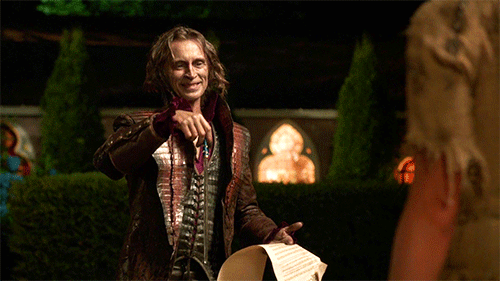
Esmeray: The Temptress of Darkness.
“They came to Esmeray as if she was some dark and alluring dancer, her tone is silky like honey—too unfortunate that they didn’t knew her sadistic nature until too late, none had survived the cruel lashes of her whip, her darkwhip-blade that cut easily like hot knife on butter.”
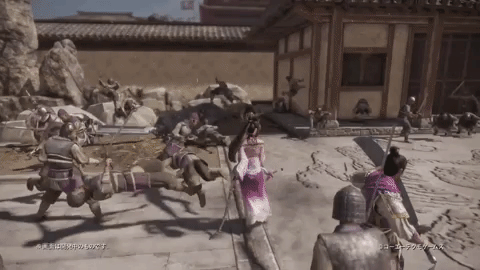
Vann: The Bringer of Darkness.
“They came to Vann from shadows and beyond—from the swirling waterfalls and great mountains, but they lost their lives when they did so.”
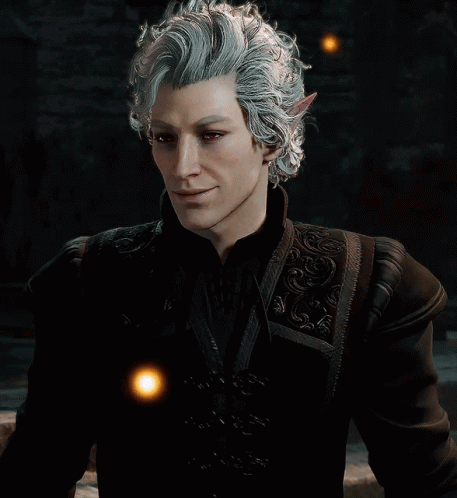
Amotrapa: The Voice of Darkness.
“They came to Amotrapa, seeking his knowledge and guidance—as if he was some kind of a wise saint, unbeknownst to them, he is anything but.”

Gif by @theartofwriting-imagines.
Keegan: The eyes of Darkness.
“They came to Keegan as if he was some dark seer— with false delicious promises of power and wealth; they foolishly believed him, and thus, they were eliminated, and they are forever stuck in the dark beyond.”

Sire Derkaām: The First Dark One.
“The first one who claimed the Patron of Darkness, the first bearer of darkness in all of Valorena.”

Zenan: The Abyss Walker.
“They came to Zenan as if he was a noble shaman — yet he was far from that, words cannot describe how evil and horrible he was, his steps like an alluring bell that echoed in the silent darkness, warning any living creature nearby, words spread that anyone visit him won’t be seen again.”

Atlas: The Umbral Reaper.
“They came to Atlas as a mere silhouette from the depths of shadows—his presence cloaked in an eerie fog. With a scythe forged from darkness itself, he struck down all who dared to challenge his power. His dark domain is full of broken bodies and dried blood, He used stalk the souls who strayed too far from the safety of Virginia’s walls.”

Edmund: The Abyss Magus.
“They came to Edmund as if he was a guardian— bestowed with devilish handsome features, with unspeakable powers and cruelty, he sucked the lives from all he lured close, he siphoned them within himself and thus he was stronger.”
#Roselyn said#Roselyn writing#writing#amwriting#creative writing#writers#writers corner#oc biography#oc bio#oc writing#oc lore#The Dark Ones#Patron of Darkness#Aspect of Darkness#writers of tumblr#writers on tumblr#authors#authors on tumblr#female writing#poets and writers#poets and poetry#oc creation#oc trivia#oc info#Ocs#my ocs
43 notes
·
View notes
Text

Ever since I read @a-very-fond-farewell ‘s fic (pls read Lamb Loose!!!) and they touch on the mythology of three-legged crow/Hou Yi/Samjok-o at the back of Doyoung’s jacket MY MIND IS BLOWN 🤯🤯 LIKE IT FINALLY MAKE SENSE!!!
The mythology fits Doyoung’s fate really well, but both Doyoung and Dongsoo are two sides of the same coin so I’d like to interpret it in a way that it affects him as well. Dongsoo shot him down, but he too turn into a three-legged crow 😔
#I’m pretty sure the director + writers of Evilive put that legend into account bc THERE’S NO WAY ITS A COINCIDENCE#NIKI YOUR RESEARCH IS CHEF KISS#I WOULDNT HAVE KNOWN WITHOUT YOU#I’ve always associated DY with wings without even realising how close to canon it is#it’s not ooc after all#also HELLO NIKI I SAW U MASS REBLOGGING I ENJOY READING YOUR TAGS#ok time to sleep fr#I will post my art here more often#evilive#biography of a villain#악인전기#도영동수#dyds#seo do young#han dong soo#fifi’s art#shhhsoftnwet
23 notes
·
View notes
Text

"what more terrifying revelation can there be than that it is the present moment?"
📚finally finished Orlando by Virginia Woolf!!📚
my first book by her and I really liked it! I gave it 4 stars⭐️⭐️⭐️⭐️
the prose is incredibly rich, which can be difficult to read at times honestly, and the story of Orlando's life was really interesting
I read this for uni to write an essay on it and there are so many interesting bits in it that would be amazing to analyse!!! I'm so happy to be excited ablout a research project again🙂↕️
this modernist fictional biography is very queer and if you don't mind the dense prose and some cultural insensitivity (cause it's from the 1920s) I would really recommend this!
#orlando#virginia woolf#orlando a biography#english literature#literature#literature review#book review#dark academia#dark acadamia aesthetic#dark academia vibes#grey academia#light academia#romantic academia#studyblr#aesthetic#booklr#bookworm#book aesthetic#books#bookblr#book quotes#reading#books and reading#book blog#modernism#modernist literature#women writers#woolf#my pics#my post
22 notes
·
View notes
Text
There is, after all, no harsher bitterness than that of a person who is his own worst enemy.
Carl Jung
#carl g. jung#carl jung#jung#autobiography#biography#memories dreams reflections#quotes#philosophy#wisdom#life#literature#writer#books#psychology#write#art#artist#idea#ideas#psychoanalysis#psychiatry
93 notes
·
View notes
Text
Herman Melville on Napoleon’s love for Ossian
Context: Ossian is the narrator and purported author of a cycle of epic poems published by the Scottish poet James Macpherson, originally as Fingal (1761) and Temora (1763), and later combined under the title The Poems of Ossian.
“I am rejoiced to see Hazlitt speak for Ossian. There is nothing more contemptable in that contemptable man (tho' good poet, in his department) Wordsworth, than his contempt for Ossian. And nothing that more raises my idea of Napoleon than his great admiration for him.—The loneliness of the spirit of Ossian harmonized with the loneliness of the greatness of Napoleon.”
Melville wrote this around 1862 in the margins of his copy of Hazlitt’s Lectures on the English Comic Writers and Lectures on the English Poets
Source: Hershel Parker, Herman Melville: A Biography - Volume 2, p. 436
#Herman Melville#Melville#Napoleon#napoleon bonaparte#Hershel Parker#Herman Melville biography#Herman Melville: A Biography#Hazlitt#Lectures on the English Comic Writers#Ossian#romanticism#napoleonic era#napoleonic#american literature#American lit#american renaissance#Wordsworth#the poems of Ossian#celtic mythology#fingal#temora#british literature#Scottish#scottish literature#Scotland#writers and Napoleon
28 notes
·
View notes
Text
25 notes
·
View notes
Text
A Bookmark Near the End
He loves history. He wanted to write a biography of John Quincy Adams. I, shamefully, knew almost nothing about John Quincy Adams, so I went online and bought every biography of him I could find. One day, he called me, claiming that we wouldn't work out long term. He said he loved me but that we had different interests. "What does love mean to you?" I said. "That's an impossible question," he replied. I, however, find love to be quite simple. Love is the stack of biographies on my nightstand with a bookmark near the end.
- Julia Nicole Camp
#writers#quotes#words#reading#words words words#poems on tumblr#poems and poetry#poems and quotes#poetic#writers and poets#poetry#excerpts#books#bookmark#history#biography#julia nicole camp#a bookmark near the end#john quincy adams
10 notes
·
View notes
Text
Since that post about Martha Gellhorn is popular here's a post about another writer who is more interesting than Hemingway.
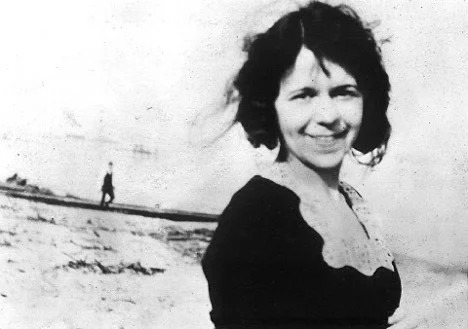
Dawn Powell on the beach, circa 1914.
Tim Page, the Estate of Dawn Powell
This is the third story in The Unmarked Graveyard: Stories from Hart Island series from Radio Diaries. You can listen to the next installment on All Things Considered next Monday, and read and listen to previous stories in the series here.
Dawn Powell infiltrated the writing world by hanging out in bars and taverns around New York's Greenwich Village in the 1920s, rubbing shoulders with the likes of Ernest Hemingway and Edmund Wilson.
"She came from nowhere, she was no one," writer Fran Lebowitz told Radio Diaries.
But Powell had a voice. She had style. And she rose from obscurity by turning her gaze on the city of New York itself and its cast of characters. Over the coming decades, Powell wrote novels, diaries and more than a dozen plays — earning her renown, and even a National Book Award nomination.
Then, in 1965, she died. What happened next didn't go according to script.
A voice lost to the world
Powell had been clear in her will: she wanted her body to be donated to the Weill Cornell Medical Center for research. Yet five years after her death, when Cornell asked her executor, Jacqueline Rice, what to do with her remains, Rice left the decision up to the center.
So, unbeknownst to her family and friends, Powell was buried on New York's Hart Island — America's largest public cemetery. Then, all of her work went out of print.
A generational talent of New York was buried in its heart, but lost to the world and those who knew her.
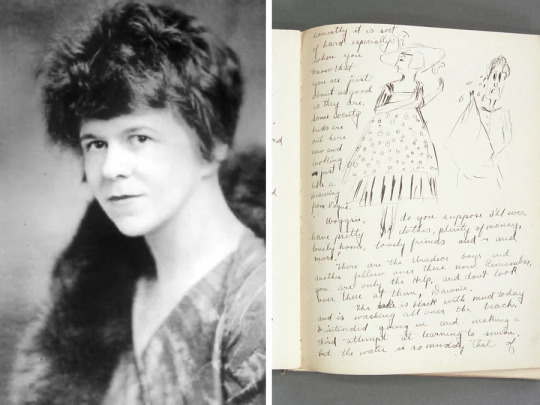
Powell circa 1930, and an entry in her diary circa 1914.
Tim Page, the Estate of Dawn Powell
Hart Island, located off the coast of the Bronx, has no headstones and no plaques. It's often seen as a place for those who went unrecognized in their lifetime — not for well-known writers.
Powell had been writing stories since she was a child. Growing up in Ohio, she endured considerable emotional abuse from her stepmother and often used writing as an escape. In 1918, she left Ohio for New York City, with dreams of being a writer.
"She knew that she was smart enough, good enough to be very good in New York, which is the most competitive place in the world," Lebowitz said.
Powell's humble beginnings in the bars of Greenwich Village turned into a career. In the coming years, she wrote witty pieces on New York life for magazines like The New Yorker and Esquire. Her career picked up steam when she began writing novels about New York: satirical, risque fiction about people who'd come to the city from a small town and indulged in its joys and vices. Her most well known novels include A Time to Be Born (1942) and The Wicked Pavilion (1954).
"She was a very smart, tough, sarcastic, woman who put all of that into her books," said Tim Page, a critic and author of Dawn Powell: A Biography. "She made fun of millionaires and communists. She basically thought human beings were silly and frivolous, but she loved them."
Powell's writing reflected her personal life. Her characters were often young people who ached for success and recognition, but rarely got it. Though her work was in the public eye (her last novel, The Golden Spur, was a finalist for the 1963 National Book Award), she did not reach the level of fame of other writers, male or female, in her era.
"Some critics thought she was mean," Page said. "All the very famous women writers were usually ending their stories with a man and a woman falling in love and living happily thereafter. Dawn had seen enough of life to realize, well, sometimes that's the case but it's not what usually happens in the world."
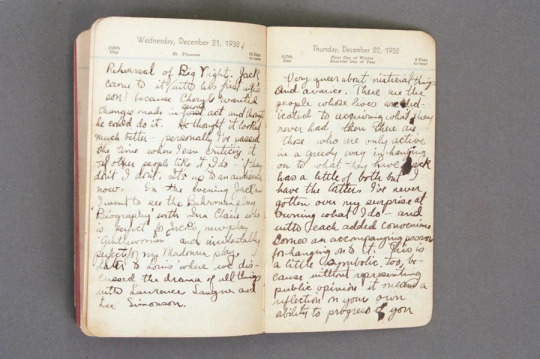
Powell's diary, December 1932.
Tim Page, the Estate of Dawn Powell
Powell struggled with money for much of her life. She and her husband, Joseph Gousha, had a disabled son who needed costly medical care. By the end of her life, she also needed medical care of her own. She developed intestinal cancer, which led to her death.
While her will was specific about her body going to the Weill Cornell Medical Center, it didn't specify what to do with her body after its donation. In addition to being Powell's general executor, Jacqueline Rice was also her literary co-executor, largely responsible for her literary estate. When her client died, Rice simply stopped responding to inquiries from publishers and filmmakers. It was some time before Rice told Powell's family about where she had ended up.
Years later, Powell's great-niece Vicki Johnson was told by her mother about the burial on Hart Island, also known as a Potter's Field.
"My mom told me it was a Potter's Field, and it was just a place where people are buried who didn't have any money or no family to take care of them," Johnson said. "My grandparents would have certainly found a better resting place for her than where she was buried."
The effort to bring Powell's work back
Powell isn't the only well-known person buried on Hart Island. There's former child actor Bobby Driscoll, who starred in some of the most iconic Disney films of the time, like Treasure Island and Peter Pan — and even won a Juvenile Oscar by the age of 13.
Driscol fell into a pattern of substance abuse and run-ins with the law in his teenage years, ranging from drug smuggling to assault. He was found dead in his Greenwich Village apartment at 31. When no one claimed his body, he ended up on Hart Island.
The cemetery is also home to Rachel Humphreys — the muse and lover to Lou Reed, and the inspiration for several songs on his album Coney Island Baby. Though her official cause of death remains unknown, Humphreys died at the age of 37 at St. Clare's hospital, known for housing AIDS patients. Hers was among the many bodies sent to Hart Island during the AIDS epidemic.
Johnson and others insist Powell wouldn't have minded being buried at Hart Island.
"I think she'd be a little amused by the fact that she's buried with a Disney star and a rock and roller," Page said. "She loved New York. She told the truth about New York and I'm not sure she'd want to be anywhere else."

Dawn Powell circa late 1940s, early 1950s.
Tim Page, the Estate of Dawn Powell
Though Powell's descendants have chosen not to remove her body from Hart Island, there has been a considerable effort to unbury her work. In 1987, her writer and friend, Gore Vidal, published an article in The New York Review of Books, praising Powell as one of American literature's lost greats. The article ignited interest in Powell in the writing world.
Steerforth Press also published a volume of Powell's diaries, edited by Page, in 1998. The Library of America put nine of her novels back in print in 2001.
These days, Powell has gained a cult-like following. Celebrities like Julia Roberts and Anjelica Huston have tried turning her books into films, and she's gotten a shout-out on the TV show Gilmore Girls.
"There will come a time when people will realize that she's one of America's greatest writers," Page said.
This story was produced by Mycah Hazel of Radio Diaries. It was edited by Deborah George, Ben Shapiro and Joe Richman. Thanks also to Nellie Gilles, Alissa Escarce, and Lena Engelstein of Radio Diaries.
This story is the third in a series called The Unmarked Graveyard: Stories from Hart Island. You can find other stories from Hart Island on the Radio Diaries Podcast.
#Dawn Powell#Women writers#Unmarked Graveyard: Stories from Hart Island#Radio Diaries#1920s#Greenwich Village#Weill Cornell Medical Center#Out of print books#Books by women#A Time to Be Born (1942)#The Wicked Pavillion (1954)#Books about women#Dawn Powell: A Biography by Tim Page#The Golden Spur
32 notes
·
View notes
Text
Winter Reading Challenge
Every season I like to give myself a challenge to read. Unfortunately, I didn't manage to finish almost any of the ones I had in the autumn challenge (I'm not a procrastinator, I swear, I just have very little free time). This time, I tried to include in the list books from several fields, from prose to poetry, philosophy, theater and theater theory, biographies. There are many Russian authors in this list, it seems to me that they fit very well with the cold season. Let's hope that this time I will stick to reading more. Wish me luck!
From December 1st - February 29th (European calendar)
Leo Tolstoy – ”Childhood. Boyhood. Youth”
Leo Tolstoy – ”War and Peace”
Fyodor Dostoevsky – ”The Double” (1846)
Fyodor Dostoevsky – ”Demons”
Ivan Turghenev – ”Rudin”
Nikolai Leskov – ”Lady Macbeth of Mtsensk and other short stories”
Anton Chekhov – ”Novellas and novelettes by Anton Chekhov”
Nikolai Gogol – ”Dead Souls”
Aleksandr Solzhenitsyn – ”One Day in the Life of Ivan Denisovich”
Mikhail Bulgakov – ”The Master and Margarita”
Maxim Gorky – ”Mother”
Vladimir Nabokov – ”Lolita”
Marguerite Yourcenar - "A Coin in Nine Hands"
Marguerite Yourcenar - "A Blue Tale"
Franz Kafka - "The Metamorphosis and other stories"
Edgar Allan Poe - "The Narrative of Arthur Gordon Pym of Nantucket"
John Edwards Williams - "Stoner"
Ovid - "Metamorphoses"
Dante Aligheri - "The Divine Comedy - Inferno"
Giovanni Papini - "Gog"
Plato - "Phaedo"
Aristotel - "Metaphysics "
Marcus Aurelius - "Meditations: Thoughts to Myself"
Immanuel Kant - "Prolegomena to Any Future Metaphysics Article Talk "
Niccolo Machiavelli - "The Prince"
Emil Cioran - "The Trouble With Being Born"
Peter Brook - "The Empty Space"
Jerzy Grotowski - "The Poor Theatre"
Antonin Artaud - "The Theatre and its Double"
Martin Esslin - "The Theatre of Absurd"
Salvador Dalí - "Diary of a Genius"
Vaslav Nijinsky - "The Diary of Vaslav Nijinsky: Unexpurgated Edition"
August Strindberg - "The Ghost Sonata"
William Shakespeare - "Titus Andronicus"
William Shakespeare - "Coriolanus"
Maxim Gorky - "The Lower Depths"
Racine - "Britannicus"
Goethe - "Gotz von Berlichingen"
Frank Wedekind - "The Spring Awakening"
Aeschylus - "The Oresteia" (Agamemnon, The Libation Bearers, The Eumenides)
#dark academia#books and reading#bookblr#book#booklr#books#reading list#winter#russian writers#biography#philosophy#reading challenge#theatre plays#theatre#poetry
38 notes
·
View notes
Note
It sounds like Joe and Ken focused on telling stories, stories that being stories focused on the world and characters they knew. While Pete's were more focused on delivering a message with story flavored wrapping.
This is very much the case, but the difference seems to go even deeper than that, to a fundamental difference in worldviews that affect how they approach story.
Episodes written by Joe Fallon and Ken Scarborough respect children as people. Children have been shaped by their experiences and have unique personalities. Children are curious and have brains--they are driven to explore new things and can draw conclusions from what they see and do. Children are already people who deserve respect, and like all of us, they're growing into different people as they learn new things and have more experiences. The child characters can thus be the drivers of their own stories and come to learn lessons for themselves. The child audience can relate to those characters, be drawn into the story, and learn what it's trying to teach without having every detail explicitly spelled out.
Episodes written by Peter Hirsch seem to approach children as people-in-training. They might have one or two personality traits, but instead of coming from and interacting with other elements of their background, they're just pasted on, like a sticker you can put on your Generic Child Prototype. These blank-slate children need to have knowledge poured into them so they can become Properly Educated Adults. So in his episodes, these child characters will go through their story with a question, and the adults--the real people--will tell them the information in great detail so these characters--and the watching audience--can go off into the world knowing what the writer has decided they need to know.
In Joe and Ken's episodes, flaws are funny, and can create funny conflicts that will teach the children better ways to approach problems. In Pete's episodes, flaws are horrible things that need to be pointed out, labeled, and sanded away, so these children can grow up into the perfect model of what a Good Adult should be. The first approach is engaging, and celebrates diversity of personality in a community, while the other becomes bland in the interests of shaping all the members of a community into the desired mold.
Comparing the two approaches provides a shockingly thorough lesson in how one should and should not approach writing and education. Story and character and message are all intertwined. Trying to force the message onto the story and characters makes for something bland and generic and unrealistic. Letting the characters shape the story and letting the story bring out the message makes for something much more unique, organic, engaging, and real. And yes, maybe I've come to this conclusion by spending far too much time thinking way too deeply about a bunch of shows for elementary-aged chlidren, but that doesn't mean it's not fascinating to see how, even within the same show, an writer's personality and approach to the audience can make such a vast difference in the quality of a story.
#answered asks#arthur#curious george#it has gotten to the point that i inspired the brother i usually talk to about these things#to google peter hirsch's biography#he couldn't find it#but we thought there has to be *some* explanation for why his work is the way it is#has he ever been outside a city?#has he ever left the east coast?#i didn't even get into the different approaches to class between the writers#joe and ken write episodes that happen in a world with working-class people#francine's family can't afford things the other kids can for instance#whereas in later arthur those real-world concerns are erased in favor of upper-middle-class discourse#i don't think i would have descended to this level of analysis except seeing all these people write for multiple shows#is really making it clear which elements come from the writer's personality regardless of the show#oh also the main post wasn't the place to mention this#but it's fascinating to see this message vs story thing applied to completely secular issues#because it drives home that it's not just the religion that makes some christian fiction so awkward#but how they approach it#message needs to come from story no matter what the message is#and you can have cringy preachy content even in completely secular works
19 notes
·
View notes
Text

Finally, After a month of working on Adeleois/Rakan lore, I managed to wrote it 😁. Let’s get started now!
Name: Rakan (Mortal) Adeleois (Mantle/Divine name).
Name meaning: In Arabic, Rakan means ‘noble’
Age: 450 Y.O.
Date of birth: 13 July. (791, In Virginian time and year).
Hair colour: Black (formerly) Silver (currently)
Eyes colour: Light Brown (formerly) Silver (currently). (Silver with violet and blue hues when he uses his powers.)
Aesthetics/Colours: Silver, Grey, Night aesthetics, moon aesthetic, moonlight, Bohemian aesthetic. Warrior aesthetics, pagan. Etc.
Favourite colours: Black, Silver, Navy blue, White.
Likes: to help people, being honest, practicing his Kophesh sword. Spread peace and justice. Loves to admire the moon. (In its every phase). Likes to read, eating healthy, Lover of mountains, lover of nature, lover of caves.
Hates: liars, bigots (Hate them with his VERY heart), Thieves, murderers, abusers, racists, Racism, Wars, and etc.
Favourite food: Beef Barley soup with roasted veggies, Mushrooms salad, Porridge. Tea, coffee, hot beverages. Bread and cheese, chocolate muffin. Beef chops.
Least favourite food: Ice cream (any flavour).
Wardrobe/outfits:
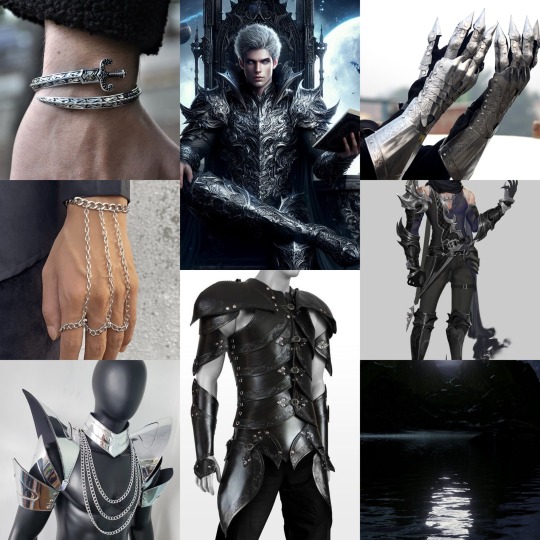


“I will defend the defenseless and protect the innocent till my last breath!” ——- Adeleois’s quote, The moon warrior.
🗡️The lore 🌕
CW: Gore and blood, Bigotry and etc.
In the glorious mountain Kythera of Virginia. An ancient place filled with power and wonder. Where the only worthy will be bestowed upon such power of divinity and wisdom.
There, on top of the mountain and beyond is fit place for living, There is a tribe called So’lar they worship and venerate the sun, They deem all other sources of light inferior.
They disrespect the people who worship the stars, the planets, the sky, but the most people who are tortured and disrespected by them; were the people who worship the moon. They are called the ‘Moon’aris’ and the Sun worshippers are called ‘Sun’aris’
The Sun’aris always call other people who worship and venerate other things ‘Lestsi’ which means: ‘Blasphemers’ or ‘Heretics’ or ‘unbelievers’
The Sun’aris took a lot of prisoners of the Moon’aris and tortured them until they abandoned their beliefs and converted to their religion, and worship the sun like them.
Rakan, was born in a place closer to the So’lar. But he found his way into the tribe because of the tribe scouts, They brought him there as a baby and decided to welcome him into the tribe.
They made sure to tell him of their ‘glorious’ religion when he grew up. And they did. They taught him everything they want. And they did the same to other children.
Rakan grew up into the So’lar tribe. He learned their ways and embraced them. He thought they are true and righteous until the day that changed his life forever.
Rakan, Who is 16 years old, He saw the scouts of the tribe brought a few people of the Moon’aris, They were two women and a man.
They were tortured brutally because they refused to abandon their beliefs. Rakan and his best friend: Andreas, they were traumatised by this.
They saw the tribe leader: Alexander, shoving his hand into the woman’s throat and pulled her vocal cords out along with other soft bloody tissues. She screamed loudly, in pain and horror; it was a macabre sight, the floor was painted in a crimson canvas of the innocent woman’s blood, she was tortured brutally, she gurgled loudly, trying to summon a cry of help and plea but she couldn’t, because her vocals cords were pulled out of her throat, Rakan changed forever. He doesn’t want to be a part of this tribe. He winced in pain at that sight and it was forever in his mind.
That sight was enough to haunt Rakan for the rest of his life, The woman was still alive when the leader tortured her like that.
Rakan and Andreas were best friends from their younger days, They ate together, played together and even studied together, They were known as ‘brothers in arms’ and they friendship was strong, one time, Andreas saved his friend Rakan from a stampede of the desert beasts. Their bond became much stronger ever since.
One day, Rakan was admiring the full moon in the night, Andreas, once again, warned him that he shouldn’t get caught while watching and admiring the moon, Rakan noted and left, after that, He heard a voice, it told Rakan he should climbed the mountain and he will see something he need. Rakan, begrudgingly agreed, He climbed the mountain with the man, After he and the man reached the mountain top.
Rakan felt something strange yet beautiful, He was admiring the full moon again. Suddenly, A bright and blinding light of the moon came down on Rakan, Bathing him in the moonlight, He felt his flesh wrought anew, reborn in the moonlight as a beacon; ready to fight for justice and the truth, it felt like eons then it dissipated, Rakan saw his reflection on the glassy rocks of the mountain, He noticed his face and everything about him changed, His looks, his body and everything thing, There are even tattoos and crescent moon mark on his forehead and body.
Fully adorned with armor made of moonlight and bestowed upon the powers of the moon. Rakan decided to use his newfound powers to protect the innocent, defend the defenseless and bring justice to the land of Kythera, He took his Kophesh sword that was made from moonlight and dashed like a moonlight meteorite to fight for freedom and justice.

Rumors and words spread alike, about a new moon warrior. That came to rescue the other people who aren’t worshipping the sun and thus being oppressed by the Sun’aris, The Sun’Aris deeply loathed this new information and they decided to search for this warrior and kill him on sight.
The leader of the Sun’aris knew of Rakan disappearance but he didn’t care at all. He thought that he died or something. But he didn’t knew that Rakan became the next Moon Warrior that is protecting the oppressed people who aren’t worshipping the sun. He is protecting morning, noon and night. He didn’t tire while doing so.
The leader of the Sun’Aris: Alexander, didn’t believe his eyes or ears, when his scouts told him of a new aspect of the moon, His eyes widened, his mouth fell agape as he tried to process their words. He even asked them again.
“Is this true?” He inquired.
They all nodded, Their faces tell the answer. “Yes, It is.”
“Yeah, He is Rakan,” one of the scouts volunteerd.
In pure anger, He threw his pen and everything on his desk on the floor. He looked terrified and confused. He looked at his scouts but they didn’t answer him let alone reacted to his meltdown. They bowed their heads and excused themselves to leave.
Alexander vowed that he will kill this new moon warrior, and he will bathe in his blood to satisfy his hatred and anger.
It was from that moment, Alexander made Andreas hate his best friend: Rakan, He managed to poison Andreas’s hearts and made him feel ‘abandoned’ and ‘betrayed’ by his so-called best friend: Rakan.
Andreas began to hate Rakan, He began to train more and more to prove himself the best warrior in mounth Kythera, He even became the aspect of the sun himself: Sunayois
Rakan or preferred to be called Adeleois, He is protecting the people of Moon’ari, Satarins and other people who worship other things, This made Alexander even more angrier and hateful.
Adeleois was excellently deluding the Sun’aris attacks and traps, He even killed them when they refused to leave him alone, bloods on his hands, his armor and on his Kophesh, So his hands are pretty much tied. He was forced to kill, he disliked killing,
The Sun’aris vowed to find Adeleois and kill him, but they couldn’t defeat him if they found him, He was far too powerful for them. He is strategic, calm, and patient unlike Sun’aris, they were brash, aggressive and aren’t strategic at all.
Adeleois is threatened with death and torture, but he didn’t care at all, his devotion was set aflame when he saw there are people who needed him, people who would pray for a saviour and Adeleois answered their prayers, His life isn’t important when he saw the numbers of people being tortured and killed for what they believe in, and —Lady Selene, The beautiful and benevolent woman who is currently the Queen of the Moon’aris. She needed him, They needed him.
It had been years of war between the Sun’aris and Adeleois, the latter managed to unite the Moon’aris, the sky worshippers, Thee satarins, and the planets worshippers to join him and aid him against those monsters, who will oppress anyone that does not convert to their religion.
All are united against the Sun’aris, The battle was fierce, bloody, merciless for the Sun’aris and yet they couldn’t win at all, because, they weren’t strong and united enough to win against Adeleois and his allies, Adeleois announced that the previous Adeleois was Andreas’s father, He was shocked when he knew that Alexander killed his father. Andreas turned on Alexander, Thus, Rakan and Andreas are friends again.
In the end, Adeleois and his allies won, Adeleois banished Alexander from Mount Kythera, The latter went to another place where he can live with his beliefs and etc, he lived alone and died alone.
Thus, All races and other people who have different religions lived together and in peace, giving way to a new era of peace and harmony and prosperity among all other people and religions.
#Roselyn posts#Roselyn writes#Roselyn oc#Rakan of So’lar#Rakan#Adeleois#moon#moon warrior#oc writing#oc lore#original character#oc community#oc story#oc bio#writing#amwriting#i’m writing#creative writing#oc biography#oc background#moon knight#my writing#ficiton#writing community#writers community#writers of tumblr#writers on tumblr#female writers#original character biography#original character lore
33 notes
·
View notes
Text

bookshop regular\book lover concept! 📚📖
#tag your favourite book#character concepts#ana posts#moodboards#aesthetic#bookshops#libraries#fantasy#adventure#sci-fi#mystery#fiction#biographies#non-fiction#stories#writers#authors#book lovers#stars#roller skate#writing#reading#readers#turtles#dictionaries#newspapers#you’ve got mail#the bookshop 2017#genres#book genres
20 notes
·
View notes
Text
@ohmyarda's expressive portrait of Tar-Míriel Ar-Zimraphel illustrates @grundyscribbling's biography of the character.
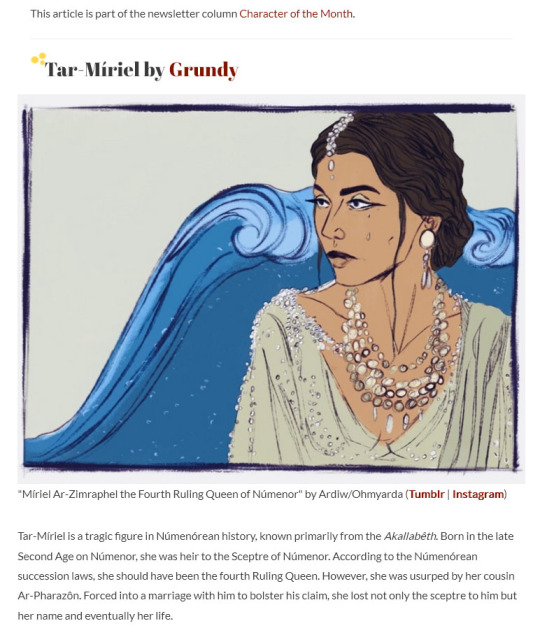
The downfall of Númenor is one of the (maybe the?) most cataclysmic events in the history of Arda. Involving a literal reshaping of the world and the consequent annihilation of an entire people, it was brought on by the rebellious voyage of Ar-Pharazôn to Aman, against the laws of the Valar. As his (unwilling) wife, Tar-Míriel had a front-row seat to the whole slow toppling of Númenor. Yet, as Grundy notes in this month's biography of Míriel:
"The text does not record Míriel’s reaction to any of these events."
As Grundy's biography of Míriel shows, she emerges as a sort of grace note on Pharazôn's story, at first just a name but then given something of a story of her own. I say "something" because her story is still very much enmeshed in her victimhood at his hands, so much that what she thought or how she reacted (or didn't) to the decisions he made go completely unrecorded.
We've now surpassed more than 150 character biographies on our site. Our reason for beginning that project back in 2007 was to provide resources for people creating fanworks. And while, if asked at the time, we probably would have said a primary aim was making more accessible the histories of some of the more complicated characters, Míriel is a reminder that an equally important purpose is bringing to light those characters whose histories Tolkien left missing, like Míriel. (She is mentioned twice in the published Silmarillion.)
Maybe her reaction to the ending of her world will at last be recorded.
You can read Grundy's biography of Tar-Míriel here, pubished by the @silmarillionwritersguild.
#tar miriel#silmarillion writers guild#swg art#swg#tolkien fanart#tolkien fandom#tolkien fanworks#silmarillion fanart#character bio#character biography#tolkien meta#silmarillion meta#artists on tumblr#fanartists on tumblr#ohmyarda#grundyscribbling
50 notes
·
View notes